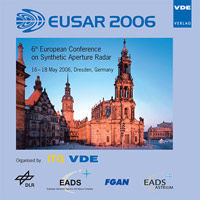The ALOS PALSAR Observation Strategy – a global mission concept
Conference: EUSAR 2006 - 6th European Conference on Synthetic Aperture Radar
05/16/2006 - 05/18/2006 at Dresden, Germany
Proceedings: EUSAR 2006
Pages: 4Language: englishTyp: PDF
Personal VDE Members are entitled to a 10% discount on this title
Authors:
Rosenqvist, Ake; Shimada, Masanobu; Watanabe, Mamabu (Japan Aerospace Exploration Agency, Japan)
Yamauchi, Kanako (Remote Sensing Technology Center of Japan, Japan)
Abstract:
The Advanced Land Observing Satellite (ALOS) was launched by the Japan Aerospace Exploration Agency (JAXA) on January 24, 2006. In addition to two optical instruments (PRISM and AVNIR-2), ALOS carries an L-band polarimetric Synthetic Aperture Radar (PALSAR). As the successor of the JERS-1 satellite (1992-1998), PALSAR does not only provide enhanced sensor performance, but also features a novel global mission concept. Abandoning traditional, local-focused instrument operations, JAXA has implemented a comprehensive acquisition strategy, in which geographical region, sensor mode, acquisition timing and repetition frequency, are fixed in advance to achieve spatially and temporally consistent, global coverage on a repetitive basis, at the same time as reducing programming and user conflicts.


